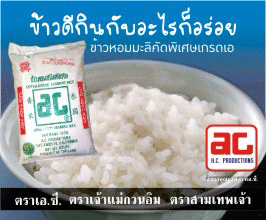QUICK OVERVIEW OF THE GOOD FAITH MARRIAGE AFFIDAVIT FOR IMMIGRATION PURPOSES
Hello everyone! In this week's article, I will write about the "Good Faith Marriage" affidavit for immigration purposes. Many people have questions about this so I decided to not only write an article for publication, but I also posted this information on my Facebook page at www.facebook.com/ThaiAttorney for everyone to read and understand. Note that this article will only be a quick overview of the Good Faith Marriage letter (“GFM”). Please keep following for a future, more thorough discussion on this topic.
General Information
The "Good Faith Marriage" affidavit is a letter written by a person (affiant), to express their opinion, to the best of their knowledge, that the applicant's marriage was entered into in "good faith" and is genuine. In short, what this means is that the person writing the letter believes that the marriage in question is not a fake relationship that was entered into solely to obtain an immigration benefit, i.e., the lawful permanent residency (aka "Green Card); that the marriage is real and based on love and care.
Although most times the GFM letter is needed when you apply to renew your conditional lawful permanent residency (or remove conditions on your 2-year LPR), immigration or "USCIS" may ask for it at the initial stage of applying for the lawful permanent residency (aka "Green Card").
Contents of the Affidavit Letter
The basics of the "good faith marriage" letter should include the following information about the affiant or writer of the letter:
• Full name
• Date and Place of Birth
• Current Address
• Date the letter was written
• A statement regarding the relationship the writer has with the applicant and the
applicant's spouse.
• A statement regarding how the relationship began, including but not limited to:
1) How long has the writer known the applicant, and the applicant's spouse.
2) Details of where and how the writer met the couple.
3) Some details of the experience the writer has with the applicant and the applicant's spouse, to which a sufficient opinion of the marital relationship can be made.
• Signature of the person writing the affidavit letter.
Signature of Writer/Notary Requirement
Once the "Good Faith Marriage" letter has been written, the author must sign the letter. The question is, does this letter need to notarized? The answer is, No...however, I highly recommend it. I would recommend that the affidavit be notarized because, a notarized signature is more trustworthy than one without a notary. In other words, if you sign and a notary stamps it, it carries more weight than a simple signature that anyone could have done it.
Contact Information
As always, I am here for you. If you have questions or comments related to this article, or if you have some other legal issue, you would like me to assist you with, please contact me (Text/Call): (818) 505-4921. And for those of you reading this article while in Thailand or you are outside of the United States, I am reachable using the LINE app. My LINE ID is: JC_Esq
If you have any questions that you would like to be answered in future articles, please email me at: JC4LAW@HOTMAIL.COM. And if you have not done so, please be sure to visit my website at: WWW.JC4LAW.COM for general information regarding this and many other topics, and also on FACEBOOK at: https://www.facebook.com/ThaiAttorney Be sure to follow (and "like") me for the most recent updates in the law!
Disclaimer: The information contained herein have been prepared for informational purposes only and are not to be considered legal advice unless otherwise specified. If you have a specific question regarding your personal case, please contact the Law Offices of Joseph Chitmongran for a full consultation.


































